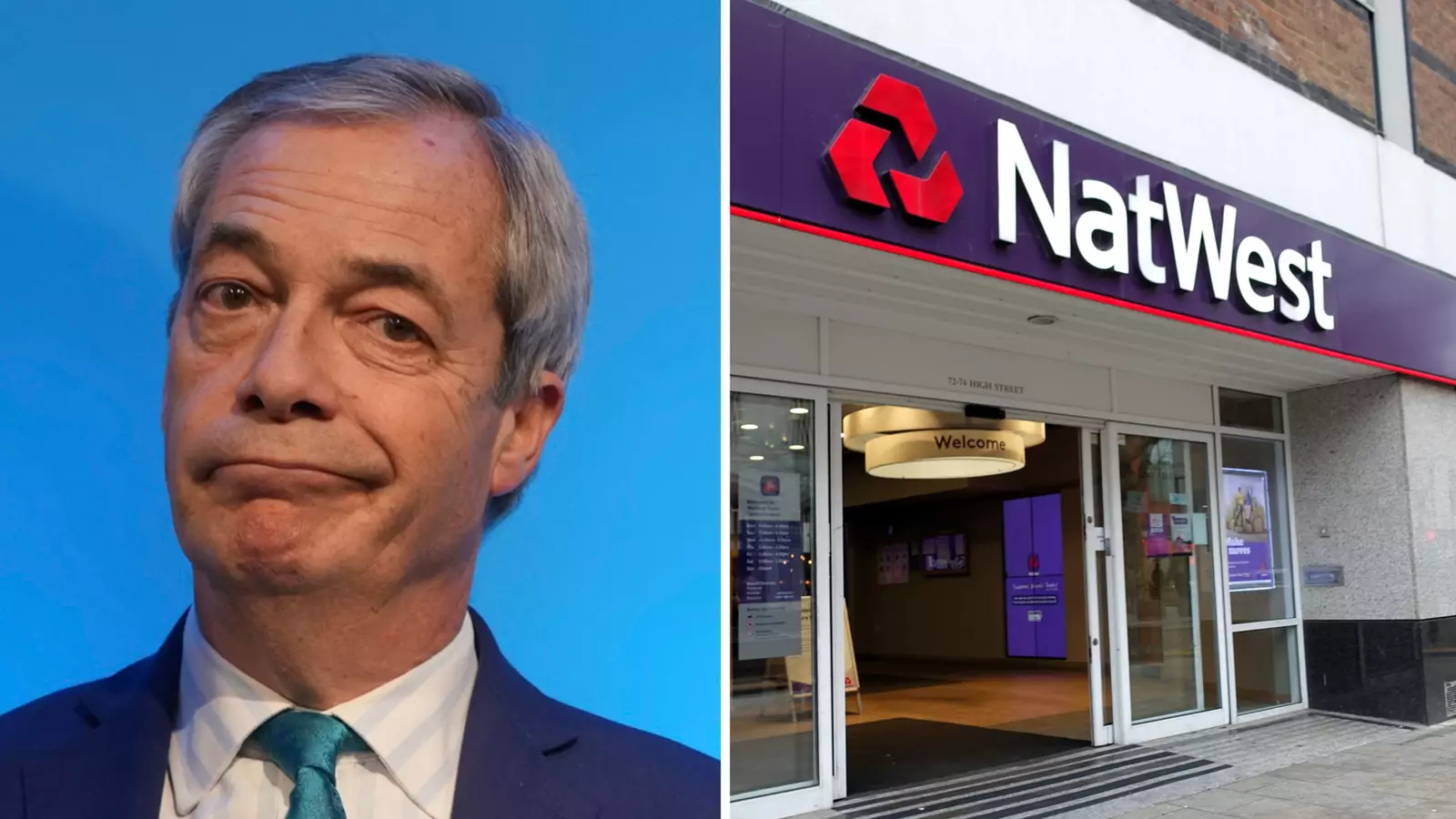In the ongoing saga of the NatWest Group’s debanking scandal, Nigel Farage, the leader of Reform UK, is contemplating private criminal action against the banking giant. This comes in the wake of public and political outcry surrounding the abrupt termination of Farage’s banking relationship with the Coutts subsidiary of NatWest. The ramifications of this event not only led to the resignation of Dame Alison Rose, NatWest’s former chief executive, but also cast a spotlight on the intersection of banking practices and political considerations in the United Kingdom.
Reports indicate that Farage has retained prominent legal counsel, Chris Daw KC, to investigate the potential for criminal charges against NatWest. By choosing to pursue this avenue, Farage is signaling dissatisfaction with the bank’s accountability, while simultaneously escalating tensions in a highly publicized dispute. The engagement of Grosvenor Law to assist in civil proceedings adds another layer to the legal complexities surrounding this issue, as Farage seeks to explore not only financial restitution but also possible criminal liability associated with NatWest’s decision-making processes.
Dame Alison Rose’s ousting was a stark illustration of how quickly corporate leadership can change in response to public pressure—especially when that pressure resonates within the political arena. Farage’s claims that his accounts were closed for political reasons rather than commercial justifications have raised fundamental questions about the fairness and transparency of banking practices applied to Politically Exposed Persons (PEPs).
Political Ramifications and Public Sentiment
The scandal has ramifications that far exceed the legal domain, as it touches upon broader societal concerns regarding the role of banks in our political and financial systems. The Conservative government’s prompt distancing from Dame Alison Rose after the debanking reveal indicates that political leaders are aware of the turbulent waters this issue could create if left unaddressed. Consequently, Rishi Sunak and Jeremy Hunt’s actions suggest recognition of the potential electoral fallout from constituents who feel disenfranchised or unfairly treated by financial institutions.
Farage’s insistence that the alleged motivation behind the debanking was political resonates with a segment of the British populace. This sentiment, paired with Farage’s rising profile in recent opinion polls—where Reform UK has reportedly surpassed both the Labour and Conservative parties—suggests that this issue may become a pivotal element in the upcoming elections. As the schism between the political establishment and public opinion widens, Farage’s legal strategy may serve to solidify his standing as a populist figure, solidifying the narrative that he is a champion for those who feel abandoned by traditional parties.
Despite the troubling allegations and potential legal repercussions, NatWest finds itself in a position of relative financial stability. Under the guidance of interim CEO Paul Thwaite, the bank is experiencing a robust resurgence, buoyed by a government divestment plan that aims to shed its remaining stake in the group. As discussions ensue regarding Farage’s claims, NatWest seems poised to further distance itself from this controversy, focusing instead on operational success in the financial arena.
However, the increasing scrutiny from British regulators, who have instructed banks to improve their treatment of PEPs, indicates that NatWest may not easily sidestep the shadows cast by this scandal. The dichotomy of the bank’s stable financial health against the backdrop of political grievances suggests that NatWest will need to engage in careful public relations to mitigate reputational damage while securing its commercial interests.
As Nigel Farage continues his quest for justice through potential criminal prosecution, the repercussions of the NatWest debanking scandal will undoubtedly reverberate through both the business and political landscapes. With a focus on transparency and fairness, this situation encapsulates the evolving dialogue on the responsibilities of financial institutions in a politically charged environment. The potential for further legal challenges, coupled with the increasing visibility of Reform UK in a changing political landscape, suggests that the events surrounding NatWest are far from resolved. Ultimately, this scenario is a vivid reminder of the precarious balance between financial conduct and political accountability in modern Britain.


Leave a Reply